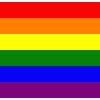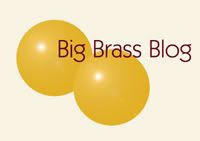Religion and politics should never mix
"Rabbi Sir Jonathan Sacks is the Chief Rabbi of the United Hebrew Congregations of the Commonwealth
Different freedoms, or why religion and politics should never mix
Credo by Jonathan Sacks
THE election of David Cameron as leader of the Conservative Party has quickened the pulse of British politics, and though I believe profoundly that religion and politics should never mix, there are times when it is important to say something religious about the political process itself.
In 1996, when one party had been in power for almost a generation, I asked a civil servant in an unguarded moment which he thought more dangerous for a nation: the coming into office of a party most of whose members had no experience of government, or the lack of a credible opposition. Without hesitation he chose the second. Politics lives, he said, on the existence of alternatives, the clash of opinions, the cut and thrust of debate. Without that, democracy dies.
In a flash I realised that he had clarified for me the profound difference between religion and politics and why neither must ever invade the territory of the other.
Democratic politics — the worst system ever invented apart from all the others — is more than the rule of the majority. That, as Alexis de Tocqueville rightly said, can lead to the tyranny of the majority and the loss of rights on the part of minorities. Its virtues are that it allows for the non-violent resolution of conflict. It makes possible a change in government without revolution or civil war. Most importantly, it safeguards the free expression of dissent.
Politics turns into virtue what religions often see as a vice — the fact that we do not all think alike, that we have conflicting interests, that we see the world through different eyes. Politics knows what religion sometimes forgets, that the imposition of truth by force and the suppression of dissent by power is the end of freedom and a denial of human dignity. When religion enters the political arena, we should repeat daily Bunyan’s famous words: “Then I saw that there was a way to Hell, even from the gates of Heaven.”
This is easily said, but behind liberal democracy lies a long and bloody past. Twice in the history of the West, religion discovered its inadequacy as a means of conflict resolution. The first occurred in the first century CE, when Jews began their disastrous rebellion against Rome. It failed because of internecine rivalry between Jews themselves. The result was the destruction of the Second Temple and an exile that lasted almost 2,000 years. It was Jewry’s worst self-inflicted tragedy.
The second took place in Christian Europe between the Reformation in 1517 and the Treaty of Westphalia in 1648. For more than a century Europe was convulsed by religious war, Christian fighting Christian as Jew had once fought Jew. Out of these experiences, first Jews, then Christians, eventually learnt to separate religion from politics, influence from power, the noble dream from the willingness to compromise that alone allows us to live graciously with those with whom we disagree.
It may seem odd to say that the most important feature of liberal democracy is its modesty. Humility is a virtue not always associated with politicians. Yet it is built into the system. The secular democratic state has no ambitions to proclaim the truth, fulfil the metaphysical longings of the soul, or pass judgment on the great questions of ethics. It is there to help us get along with one another, making our several contributions to the common good. It is the best way yet discovered of allowing us all to feel heard, our views considered if not always accepted, and of constructing a society we see as tolerable if not ideal.
There is something noble about this self-limitation. Liberal democracy does what few great religions have ever achieved. It makes space for difference. It honours the person regardless of his or her beliefs. It allows societies to negotiate change without catastrophe. It teaches us the difficult arts of listening to our opponents and — in Isaiah’s phrase — “reasoning together”. These are modest virtues but necessary ones.
We are living in an age in which, not just in Britain but throughout the world, many people are disillusioned with secular politics, and are turning to religion instead. In itself that is a blessing. Religious faith is our noblest effort to understand ourselves and our place in the universe. The expansive air of the spirit redeems the narrowness of the material world. But to expect it to solve political problems is to invite disaster. Religion becomes political at its peril, and ours."
|
Different freedoms, or why religion and politics should never mix
Credo by Jonathan Sacks
THE election of David Cameron as leader of the Conservative Party has quickened the pulse of British politics, and though I believe profoundly that religion and politics should never mix, there are times when it is important to say something religious about the political process itself.
In 1996, when one party had been in power for almost a generation, I asked a civil servant in an unguarded moment which he thought more dangerous for a nation: the coming into office of a party most of whose members had no experience of government, or the lack of a credible opposition. Without hesitation he chose the second. Politics lives, he said, on the existence of alternatives, the clash of opinions, the cut and thrust of debate. Without that, democracy dies.
In a flash I realised that he had clarified for me the profound difference between religion and politics and why neither must ever invade the territory of the other.
Democratic politics — the worst system ever invented apart from all the others — is more than the rule of the majority. That, as Alexis de Tocqueville rightly said, can lead to the tyranny of the majority and the loss of rights on the part of minorities. Its virtues are that it allows for the non-violent resolution of conflict. It makes possible a change in government without revolution or civil war. Most importantly, it safeguards the free expression of dissent.
Politics turns into virtue what religions often see as a vice — the fact that we do not all think alike, that we have conflicting interests, that we see the world through different eyes. Politics knows what religion sometimes forgets, that the imposition of truth by force and the suppression of dissent by power is the end of freedom and a denial of human dignity. When religion enters the political arena, we should repeat daily Bunyan’s famous words: “Then I saw that there was a way to Hell, even from the gates of Heaven.”
This is easily said, but behind liberal democracy lies a long and bloody past. Twice in the history of the West, religion discovered its inadequacy as a means of conflict resolution. The first occurred in the first century CE, when Jews began their disastrous rebellion against Rome. It failed because of internecine rivalry between Jews themselves. The result was the destruction of the Second Temple and an exile that lasted almost 2,000 years. It was Jewry’s worst self-inflicted tragedy.
The second took place in Christian Europe between the Reformation in 1517 and the Treaty of Westphalia in 1648. For more than a century Europe was convulsed by religious war, Christian fighting Christian as Jew had once fought Jew. Out of these experiences, first Jews, then Christians, eventually learnt to separate religion from politics, influence from power, the noble dream from the willingness to compromise that alone allows us to live graciously with those with whom we disagree.
It may seem odd to say that the most important feature of liberal democracy is its modesty. Humility is a virtue not always associated with politicians. Yet it is built into the system. The secular democratic state has no ambitions to proclaim the truth, fulfil the metaphysical longings of the soul, or pass judgment on the great questions of ethics. It is there to help us get along with one another, making our several contributions to the common good. It is the best way yet discovered of allowing us all to feel heard, our views considered if not always accepted, and of constructing a society we see as tolerable if not ideal.
There is something noble about this self-limitation. Liberal democracy does what few great religions have ever achieved. It makes space for difference. It honours the person regardless of his or her beliefs. It allows societies to negotiate change without catastrophe. It teaches us the difficult arts of listening to our opponents and — in Isaiah’s phrase — “reasoning together”. These are modest virtues but necessary ones.
We are living in an age in which, not just in Britain but throughout the world, many people are disillusioned with secular politics, and are turning to religion instead. In itself that is a blessing. Religious faith is our noblest effort to understand ourselves and our place in the universe. The expansive air of the spirit redeems the narrowness of the material world. But to expect it to solve political problems is to invite disaster. Religion becomes political at its peril, and ours."






